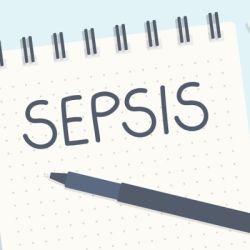Interpretability is crucial for the ethical use of AI in radiology and is likely to be mandated by regulations in the US and Europe. Many advanced AI algorithms in radiology are black boxes, leading to potential overreliance and incorrect diagnoses. Current clinical risk prediction models for breast cancer often overlook mammography image data, despite recent studies indicating improved performance with its inclusion. The goal is to enhance risk prediction for personalised screening strategies. A notable AI model is Mirai, a deep learning network trained on screening mammograms from over 56,000 patients to predict short-term breast cancer risk. While Mirai's performance is robust, its complex architecture makes interpretation challenging. Existing post hoc explanation methods are unreliable for Mirai. To address this gap, a recent study published in Radiology introduces AsymMirai, a simplified model that focuses on localised bilateral dissimilarities in mammograms to compute risk. The study aims to determine if bilateral dissimilarity is fundamental to Mirai's prediction process; develop AsymMirai with a more understandable reasoning process based on bilateral dissimilarity; and assess whether AsymMirai can match Mirai's performance in predicting 1-5-year breast cancer risk.
EMBED Dataset: Training and Validation of AsymMirai for Breast Cancer Risk Prediction
The study utilized the EMBED dataset, a collection of retrospective breast imaging data from 116,890 patients aged on average 58.5 years, collected between 2013 and 2020. The dataset included patients from various racial backgrounds. AsymMirai was trained on the training subset of this dataset. Performance evaluation of AsymMirai was conducted on the EMBED validation cohort, which was also used for Mirai's external validation. Out of this cohort, 2.9% (679 patients) were diagnosed with breast cancer. The EMBED validation cohort is part of the publicly accessible EMBED Open Data dataset. Examinations with data abnormalities, lacking two-dimensional images, missing all four screening views, and diagnostic examinations were excluded from the validation cohort.
Enhancing Transparency in Breast Cancer Risk Prediction
The study delves into the challenge of the inherent opacity of AI algorithms used in breast cancer risk prediction, with a specific emphasis on the Mirai model. To enhance the interpretability and transparency of these AI-driven predictions, the researchers introduced AsymMirai as an alternative model. AsymMirai's methodology focuses on bilateral dissimilarity, a crucial factor in Mirai's prediction process. AsymMirai leverages the convolutional neural network (CNN) from Mirai to extract features from breast imaging data. It then calculates differences in the latent space, providing a visually intuitive representation of bilateral dissimilarity. This method allows for a more transparent understanding of the model's reasoning process compared to traditional black-box AI algorithms.
Performance and Advantages of AsymMirai in Breast Cancer Risk Prediction Using Bilateral Dissimilarity
The performance evaluation of AsymMirai showed promising results. It closely approximated Mirai's predictive power for 1-5-year breast cancer risk, with a correlation coefficient (r) greater than 0.6832. Despite a slight reduction in performance, the relative results were consistent across various prediction horizons. Two distinctive advantages of AsymMirai were identified in the study. Firstly, it effectively detected confounded predictions caused by incorrectly placed prediction windows. Secondly, when the prediction window remained consistent over multiple years, AsymMirai demonstrated superior predictive accuracy. This consistency was hypothesised to be due to AsymMirai's ability to identify tissue abnormalities before the development of actual lesions. The study's approach to using bilateral dissimilarity as an imaging marker is related to, but not synonymous with, the concept of breast asymmetry employed in the Breast Imaging Reporting and Data System (BI-RADS). Traditional methods of image-based risk prediction often relied on handcrafted features and machine learning models like support vector machines. In contrast, AsymMirai harnesses the power of Mirai's CNN to utilise learned latent features, offering a more advanced and data-driven approach.
Challenges and Limitations in Validating Mirai and Implementing AsymMirai
The study also addressed external validations of Mirai across different datasets. While Mirai demonstrated robust generalisation capabilities, its reported validation on the EMBED dataset had limitations. These limitations, such as the inclusion of diagnostic mammograms, led to discrepancies in results compared to other studies. Despite its promising performance, AsymMirai has its limitations. It does not exclusively rely on bilateral dissimilarity for predictions, and its performance varies across different racial subgroups due to biases in Mirai's training data. Additionally, the model may be susceptible to major misalignment errors during imaging.
This study underscores the potential of localised bilateral dissimilarity as a valuable imaging marker for breast cancer risk prediction. AsymMirai, with its transparent and interpretable approach based on bilateral dissimilarity, demonstrates comparable predictive power to the sophisticated Mirai model. This research paves the way for future advancements in breast cancer risk assessment, emphasising the importance of transparent and clinically relevant AI models.
Source: RSNA Radiology
Image Credit: iStock














